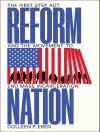This collection provides new insights into the ’Age of Revolutions’, focussing on state trials for treason and sedition, and expands the sophisticated discussion that has marked the historiography of that period by examining political trials in Britain and the north Atlantic world from the 1790s and into the nineteenth century. In the current turbulent period, when Western governments are once again grappling with how to balance security and civil liberty against the threat of inflammatory ideas and actions during a period of international political and religious tension, it is timely to re-examine the motives, dilemmas, thinking and actions of governments facing similar problems during the ‘Age of Revolutions’.
The volume begins with a number of essays exploring the cases tried in England and Scotland in 1793-94 and examining those political trials from fresh angles (including their implications for legal developments, their representation in the press, and the emotionand the performances they generated in court). Subsequent sections widen the scope of the collection both chronologically (through the period up to the Reform Act of 1832 and extending as far as the end of the nineteenth century) and geographically (to Revolutionary France, republican Ireland, the United States and Canada). These comparative and longue durée approaches will stimulate new debate on the political trials of Georgian Britain and of the north Atlantic world more generally as well as a reassessment of their significance. This book deliberately incorporates essays by scholars working within and across a number of different disciplines including Law, Literary Studies and Political Science.
Jadual kandungan
Frontmatter: Preface; Geoffrey Robertson, QC.- Introduction; Michael T. Davis, Emma Macleod and Gordon Pentland.- Part I. The 1790s.- 1. The English and Scottish State Trials of the 1790s Compared; Emma Macleod.- 2. ‘Subverting the Settled Order of Things’: The Crime of Sedition in Scotland, 1793-1849; Lindsay Farmer.- 3. The Newspaper Press, Sedition and the High Court of Justiciary in Late Eighteenth-Century Edinburgh; David G. Barrie and Joanne Mc Ewan.- 4. The English and Scottish State Trials of the 1790s Compared; Emma Macleod.- 5. Sermons of Sedition: The Trials of William Winterbotham; James Epstein.- 6. The Noise and Emotions of Political Trials in Britain during the 1790s; Michael T. Davis.- 7. Literary Justice: Representing the London Treason Trials of 1794; Nancy E. Johnson.- 8. Political trials and the suppression of popular radicalism in England, 1799-1820; Katrina Navickas.- 9. State Trials, Whig Lawyers and the Press in Early Nineteenth-Century Scotland; Gordon Pentland.- 10. ‘Some Examples Should Be Made’: Prosecuting Reform Bill Rioters in 1831-32; Steve Poole.- Part III. The North Atlantic World.- 11. Political Trials, Terror and Civil Society: the Case of the Revolutionary Tribunal in Paris, 1793-94; Mike Rapport.- 12. Hero or Villain? The Treason Trial of Aaron Burr (1807); Jack Fruchtman.- 13. Irish Political Trials, 1793-1848: Associationalism, Emotion and Memory; Martyn Powell.- 14. State Trials in Post-Revolution British North America; Barry Wright.
Mengenai Pengarang
Michael T. Davis is Senior Lecturer in the School of Humanities at Griffith University, Australia.
Emma Macleod is Senior Lecturer in History at the University of Stirling, Scotland.
Gordon Pentland is Reader in History in the School of History, Classics and Archaeology at the University of Edinburgh, Scotland.












